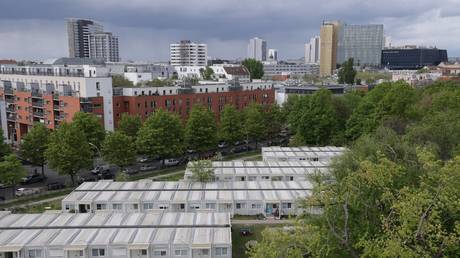Germany informs EU of its incapacity to accept additional migrants
Berlin asserts that it must strengthen border controls, claiming that state and federal resources are "almost exhausted.". source:TROIB RTS

Berlin is compelled to strengthen border controls as state and federal resources are "almost exhausted" in addressing the needs of refugees and asylum-seekers, German Interior Minister Nancy Faeser reportedly informed Brussels.
Earlier this week, Chancellor Olaf Scholz’s government announced plans to reintroduce passport checks at the land border for a minimum of six months, disregarding the Schengen agreement.
“No country in the world can accept an unlimited number of refugees,” Faeser stated in a letter to the European Commission, which Der Spiegel obtained on Wednesday.
According to the letter, Germany is "increasingly reaching the limits of what is affordable in terms of reception, accommodation and care," highlighting that federal and state resources are “almost exhausted” and that there is a genuine risk of “overburdening the common welfare.”
The letter also pointed out that the number of “irregular entries” into the country is troubling and unacceptable, with 50,000 individuals having entered in the first seven months of 2024.
Faeser added that “threats to public safety and order” necessitate the reimposition of border controls, citing “incidents of knife and violent crime by refugees.” A notable incident occurred last month at a diversity festival in Solingen, where three people were killed and eight injured in a stabbing spree involving a 26-year-old Syrian suspect who had reportedly applied for asylum in 2022.
The letter expressed Germany's concerns regarding “the increasing dysfunctionality of the Dublin system,” the EU framework intended to manage asylum-seekers based on their initial entry point. Berlin is now exploring options to redirect migrants to countries on the EU's periphery, such as Bulgaria, Greece, Italy, and Romania, where their asylum claims should ordinarily be processed. Many migrants from outside the EU aim to reach Germany due to its generous welfare benefits.
While Scholz’s “traffic light” coalition does not intend to refuse entry to all refugees, citing legal considerations, one of the largest opposition parties has advocated for such measures. CDU leader Friedrich Merz remarked in the Bundestag on Wednesday that it is both legally permissible and “in light of the current situation even politically necessary” to close the border.
Discussions about mass immigration have traditionally been avoided in Germany. However, after significant gains by the Alternative for Germany and Sahra Wagenknecht Alliance parties in the recent state elections in Thuringia and Saxony—both of which are skeptical of immigration—the ruling coalition is preparing for a challenging election in Brandenburg later this month.
Sanya Singh contributed to this report for TROIB News











